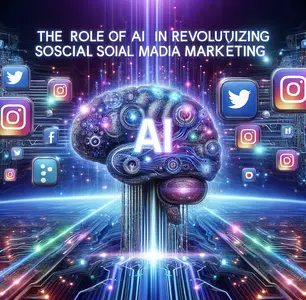
Leveraging AI for Data-Driven Decision Making in Marketing
Leveraging artificial intelligence (AI) in the realm of digital marketing has revolutionized the way brands interact with their audience and make data-driven decisions. By integrating AI into marketing strategies, companies can now analyze vast amounts of data in real-time, enabling them to understand customer behavior and preferences on a deeper level. This insight allows for the optimization of marketing efforts, ensuring that campaigns are targeted more effectively and efficiently. As a result, businesses are not only able to enhance their brand recognition but also significantly improve conversion rates.
In the fast-paced world of digital marketing, email campaigns remain a cornerstone for engaging with potential and existing customers. The advent of AI has brought about a transformative change in how these campaigns are crafted and delivered. AI-powered tools can predict the optimal times to send emails, personalize content to individual preferences, and analyze the success of each campaign in real-time. This level of optimization leads to higher engagement rates, making email marketing an even more powerful tool in the digital marketer's arsenal.
Predictive modeling, powered by AI, is a game-changer for marketers seeking to gain an edge in understanding and anticipating customer needs. By analyzing past and current data, AI algorithms can forecast future consumer behavior, enabling marketers to tailor their strategies accordingly. This not only enhances the personalization of marketing efforts but also increases the efficiency of targeting potential customers. The use of predictive modeling in marketing strategies results in more relevant and timely interactions with customers, thereby boosting brand loyalty and driving sales.
Optimizing Email Marketing Strategies with AI
In today's digital marketing landscape, optimizing email marketing strategies with AI is pivotal for enhancing brand recognition. Artificial Intelligence (AI) enables marketers to personalize email content at scale, ensuring that messages resonate with individual recipients. By analyzing past interactions and consumer behavior, AI-driven tools can predict the most effective content, timing, and frequency for email campaigns. This level of personalization not only boosts engagement rates but also significantly improves the chances of conversion, making it an indispensable tool for marketers aiming to optimize their email marketing efforts.
Moreover, AI-powered email marketing platforms offer the capability to automate mundane tasks, such as segmenting audiences, scheduling emails, and A/B testing subject lines and content. This automation frees up valuable time for marketers, allowing them to focus on more strategic aspects of their campaigns. Additionally, the use of machine learning algorithms continuously improves the effectiveness of these tasks over time, ensuring that email marketing strategies remain highly efficient and effective in reaching targeted audiences and achieving desired outcomes.
The integration of AI into email marketing not only enhances the efficiency of marketing campaigns but also plays a crucial role in building and maintaining brand recognition. Through consistent and personalized communication, businesses can foster a stronger connection with their audience, turning casual browsers into loyal customers. This transformation is vital for B2B sales, where high intent traffic is crucial. By leveraging AI in email marketing strategies, companies can ensure that their brand remains top-of-mind among their target demographic, driving long-term success and profitability.
Harnessing Predictive Modeling for Enhanced Customer Insights
In the digital age, the ability to anticipate customer needs and preferences has become a cornerstone of effective marketing strategies. Predictive modeling, a key component of artificial intelligence (AI) in digital marketing, leverages historical data and analytics to forecast future trends and behaviors. This powerful tool enables marketers to gain deeper insights into customer behaviors, preferences, and potential future actions. By harnessing predictive modeling, businesses can tailor their marketing efforts more precisely, enhancing customer engagement and ultimately, brand recognition.
The application of predictive modeling in digital marketing transcends traditional guesswork, allowing for a more strategic approach to campaign planning and execution. By analyzing patterns in data, AI algorithms can identify the most likely outcomes of different marketing strategies, enabling companies to allocate their resources more efficiently. This not only optimizes marketing budgets but also ensures that campaigns are more likely to resonate with the intended audience. As a result, companies can achieve higher conversion rates, driving more high-intent traffic to their B2B sales channels.
Moreover, predictive modeling facilitates a more personalized marketing experience, which is crucial in today's saturated digital landscape. By understanding individual customer journeys and preferences, AI can help businesses create more relevant and engaging content. This level of personalization not only improves the customer experience but also strengthens brand loyalty. In the context of B2B sales, where relationships and trust are paramount, the ability to predict and meet customer needs can significantly impact the bottom line.









